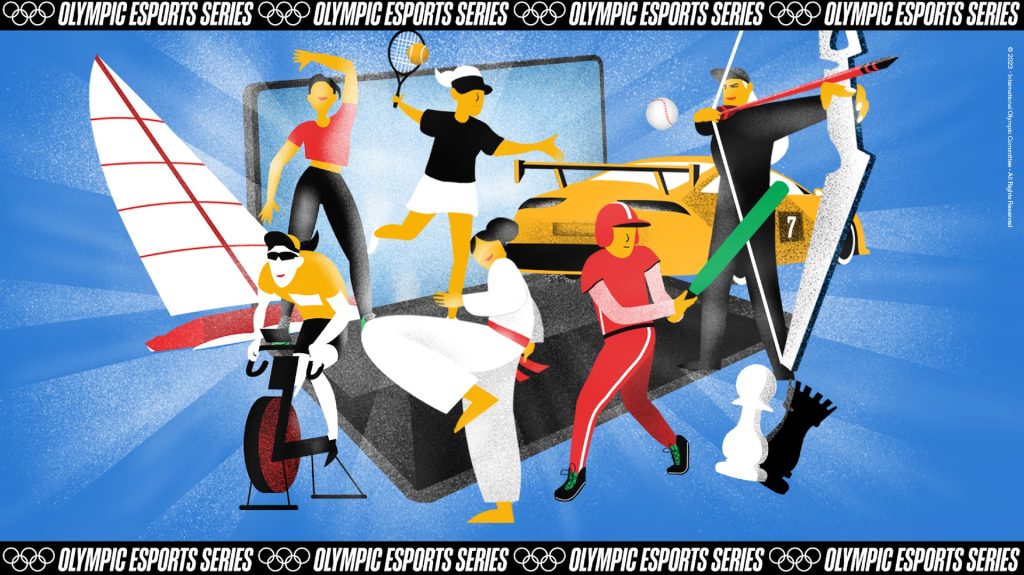
People have been debating whether esports counts as sports since the first video game tournament was held in 1972 for the game Spacewar!, the prize for which was a years’ subscription to Rolling Stone magazine (and free beer).
But as we’ve gone from beer to billions, the stakes have risen — as has a plethora of polarised opinions.
For many, that esports counts as sport is a truism. It involves born talent and learnt skill, which individuals or teams pit against each other competitively as a form of entertainment.
Others vehemently and bitterly deny such an association, typically arguing that a lack of physical activity precludes it from meeting traditional ideas of what sport is. A glance at the comment section on the subreddits of football clubs that have entered esports is a typically reliable example of this — and just how far esports still has to go in terms of mainstream appreciation.
Ultimately, the answer comes down to how you define sport. Is substantial physical exertion a prerequisite of sport? Do flicks of the wrist and intricate mechanical movements on mice, keyboards and controllers count as physical labour? What about muscle memory and reaction time?
Prevailing arguments against esports being a sport typically come from the realm of the traditional sporting world. British swimmer Sharron Davies, for example — who won a gold medal at the 1978 Commonwealth Games — recently hit out at esports’ inclusion as a pilot event at the 2022 Birmingham Commonwealth Games.
“We should try to evolve [the Commonwealth Games] with physical activity sports that engage young people, not ones that require people to sit on their backside and use their two fingers and their thumb,” the ex-swimmer said, as quoted by the BBC.
There is also difficulty from some of the sporting world when it comes to actually understanding esports. This was on full display when the official Olympics organising committee announced the Olympic Esports Series in March 2023. Numerous virtual sport simulation games, like an obscure tennis mobile game, were chosen and framed as ‘esports’ for the Olympic Esports Series over established esports titles, upsetting the vast majority of the esports community.

Yet far more athletes have endorsed esports with open arms than have criticised it. David Beckham, Shaquille O’Neal, Aerial Powers, Neymar Jr. and many more of sports’ leading celebrities have sought to validate esports in the eyes of the wider world.
Sporting teams, too, have piled into esports. Numerous football clubs have announced their entry into esports, and several Overwatch League and Call of Duty League franchises are owned by major sporting executives. Robert Kraft (CEO of New England Patriots, owner of Boston Uprising) and Jeff Wilpon (Executive Vice-President of Sterling Equities, owner of the New York Excelsior) are just two prominent examples.
They’re joined by a wide assortment of esports industry figures that see little difference between the disciplines of sports and esports.
“Esports has always deserved recognition as a legitimate sport due to the countless similarities that put the two on par with each other,’ said Lokesh Suji, Director of the Esports Federation of India & Vice President of the Asian Esports Federation. The Indian government recently recognised esports events as ‘multi-sports events’, which could lead to more funding and investment.
“Just like traditional sports, esports demands a substantial degree of mental and physical proficiency from its athletes. While professional players playing solo titles require quick reflexes, exceptional motor skills as well as deft coordination to excel, teams need to formulate strategies, and tactics and showcase effective teamwork, communication, and analytical thinking to outclass their opponents,” Suji noted.
Why does it matter?

But beyond semantic debates, does it matter whether or not we call esports sports? In a word, yes. The way esports is labelled and recognised shapes how it is regulated by authorities.
According to the Interactive Software Federation of Europe (ISFE), a body representing video game publishers and national trade associations, esports is fundamentally different from sports because esports are based on the private intellectual property of their publishers. ISFE argues that this means applying existing sports regulation would cause problems — in particular because sports regulation is not fit for purpose, and may produce regulatory fragmentation.
“In sport, the sport itself doesn’t have intellectual property rights, it isn’t owned by anyone,” Sergi Mesonero, Head of Esports at ISFE, explained. “In esports, all of these disciplines are owned by somebody, and this changes the way the ecosystem works completely. It’s a completely different ecosystem and applying regulation that applies to sports is not fit for purpose in many, many ways.”
Were esports to be regulated using copy-pasted sports regulations, it could potentially hinder video game publishers’ ability to run the services necessary to keep esports going, for example hosting online servers or tweaking game engine rules. That may have a knock-on effect on whether, how or where video game publishers choose to pursue esports.
However, ISFE clarified that treating esports differently from sports from a regulatory perspective does not mean esports is any less skilful. “We are against the classification of esports as a sport from the point of view of regulation — that does not mean we cannot consider esports as sport.
“It would be fine talking about esports as sport if it weren’t [for the fact] it creates a lot of confusion, especially in the minds of people that are not very aware of the real nature of esports,” Mesonero continued. “We’ve seen this in many places that because of the linguistic conflation between them, some think that the esports ecosystem works in a very similar way to the one for sports and actually this is not the case.”
Esports, esports athletes or esports events have been officially endorsed or recognised in some capacity by numerous governments around the world, including the United States, China, South Korea, India and more.
As the industry continues to form around professional players (gamers, athletes, e-athletes, cybercompetitors, etc.) going head to head in media spectacles of ever-growing size and scale, the debate over esports’ legitimacy rages on. But keep in mind: as more countries introduce tailor-made esports policy and regulation, how we — and policymakers — talk about esports matters.
